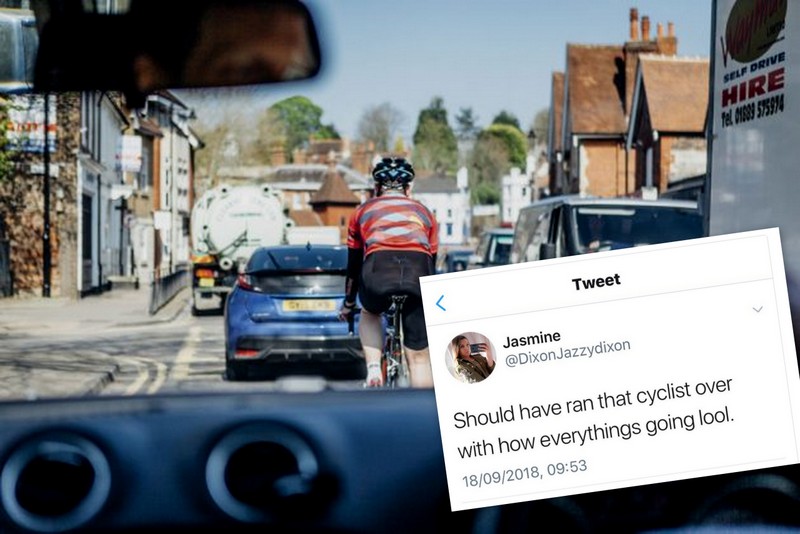Surrey Police tell Twitter user who 'should have ran that cyclist over' to return her licence
The Road Policing Unit warned that users should watch what they post on a public forum


The latest race content, interviews, features, reviews and expert buying guides, direct to your inbox!
You are now subscribed
Your newsletter sign-up was successful
Surrey Police have issued a public warning to a Twitter user who posted a message which read "should have ran that cyclist over."
'@DixonJazzydixon' has since deleted her account, after she made the comment, following it up with 'lool'.
A spokesperson from Surrey Police's Road Policing Unit (RPU) took a snapshot of the tweet, sharing it with advice that Jasmine "think twice" about what she posted on a public forum.
Police added: "You never know who’s watching...us, your employer, or what about the judge when you kill a cyclist. This type of comment could easily be used as evidence in court, proving your attitude towards a vulnerable road user."
In a comment thread, they added: "If you really feel that way about a cyclist, please return your licence to the DVLA as you’re clearly not fit to hold a licence - which is a privilege to hold, not a right."
"Cyclists are humans that chose a different method of transport to you, that’s all. I haven’t been to a fatal collision where someone intended to kill someone, but I have where aggression and frustration were a clear factor. I’d prefer to nip it in the bud with [sic] tweet than turn up at another fatal in the future."
The tweet drew a range of responses from online spectators.
The latest race content, interviews, features, reviews and expert buying guides, direct to your inbox!
One user told the police to "lighten up" and another accused them of "intimidating someone to the point where they delete their account."
Those in support of the police called it "top work" and "fair play."
It's not the first time the Surrey Police RPU account has responded to threats regarding cyclists.
In November last year, a spokesperson using the account told a driver suggesting that cyclists ride to the left “so people can overtake you without risking their lives” that cyclists should in-fact adopt the primary position and "do exactly what you are telling them not to do."
Recent surveys have shown that the threat of being aggressively passed too closely by other vehicles is one of the biggest deterrents preventing would-be cyclists from taking to two wheels.
A YouGov poll completed by 2,024 randomly selected individuals showed 56 per cent were worried by close passes, and 30 per cent of respondents were in favour of bad driving being taken more seriously by police.
>>> Conservatives come under fire over plans to crack down on ‘dangerous cycling’
The Department for Transport unveiled a selection of plans to help encourage more active commutes in August, but its intentions to improve conditions were overshadowed by the inclusion of plans to "crack down on dangerous cycling" with the introduction of an offence for cyclists, akin to causing death by dangerous driving.
Michelle Arthurs-Brennan the Editor of Cycling Weekly website. An NCTJ qualified traditional journalist by trade, Michelle began her career working for local newspapers. She's worked within the cycling industry since 2012, and joined the Cycling Weekly team in 2017, having previously been Editor at Total Women's Cycling. Prior to welcoming her first daughter in 2022, Michelle raced on the road, track, and in time trials, and still rides as much as she can - albeit a fair proportion indoors, for now.
Michelle is on maternity leave from April 2025 until spring 2026.
